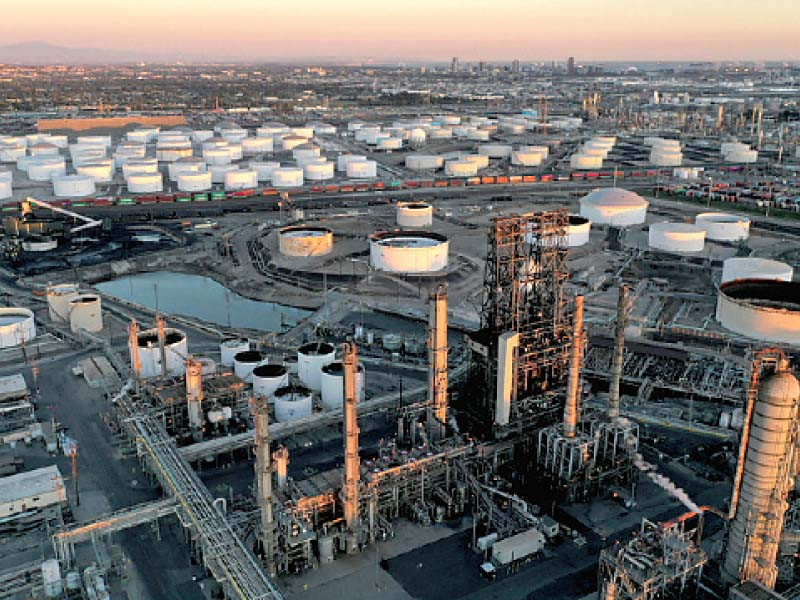ISLAMABAD:
Pakistan was in talks for the rollover of $11 billion in bilateral debt from China and Saudi Arabia to meet external financing requirements, said interim Finance Minister Dr Shamshad Akhtar on Thursday while terming rising global crude oil prices a risk to external sector stability.
In a briefing to the Senate Standing Committee on Finance, Akhtar informed the parliamentary panel about the attempts being made to raise $26 billion in debt for debt repayments and financing the current account deficit.
She stated that as per World Bank’s estimates poverty in the last fiscal year went up to 40% from over 34% and unemployment increased to 10% from 6.3%, said Senator Saleem Mandviwalla, Chairman of the Standing Committee.
To meet the external financing requirements, “we are working to secure concessionary funding from multilateral creditors to the tune of $6.3 billion,” she stated, adding that the International Monetary Fund (IMF) had already approved a $3 billion package.
The finance minister said that efforts were being made for a bilateral assistance of around $11 billion. These are mostly maturing loans that the country is not in a position to repay and requesting the bilateral creditors for further extension.
Read Pakistan eyes $25b Saudi investment
Pakistan is working to roll over a $5 billion Chinese debt and $6 billion Saudi debt, which includes the safe deposit and oil facility, according to a senior finance ministry official.
Internal assessments of the Ministry of Finance have revealed at least $4.4 billion financing gap only on account of Eurobonds and commercial loans.
The standing committee was informed that the key risk to external stability came from the rise in international commodity prices. Brent crude prices have jumped to $95 per barrel in September, an increase of 27% from $74 in June 2023.
Pakistan’s external position remains precarious due to the thin foreign exchange reserves.
The minister briefed the committee about efforts to enhance the reserves. Under the nine-month IMF programme, Pakistan is committed to increasing the State Bank’s reserves to $9 billion, or equal to 2.3 months of imports.
The caretaker government has worked to fast-track the concessionary project and programme loans from the multilateral institutions. “We have $6.3 billion in pipeline in the current fiscal year,” she added.
The minister stated that the government was targeting an increase in SBP’s reserves to $12 billion, or three months of import cover, by June 2024 based on higher official inflows and a pickup in foreign investment under the Special Investment Facilitation Council (SIFC).
The finance ministry mentioned about fast-tracking the second transaction between Karachi Port Trust (KPT) and AD Ports UAE for the outsourcing of operations of the bulk and general cargo terminal.
Pakistan’s economic situation remains weak. The September 2023 World Bank report states 40% of households have fallen into poverty by the end of last fiscal year, up from 34.2% a year ago. Unemployment has increased to 10%, taking a sharp jump from 6.3%.
Read more PDM govt borrowed Rs907b in just one month
Akhtar informed the committee that the caretaker government took measures to stabilise the economy and build market confidence.
The minister said that in the first two months of the current year, the current account deficit (CAD) declined further by 54% to $921 million. The full-year CAD was projected to stabilise around $6.5 billion, or 1.5% of GDP, as trade and investment flows normalised, she added.
The caretaker government has removed the import ban that badly impacted the availability of raw material for the industry. With the relaxation, Letters of Credit are being opened for imports and the backlog of import payments for the Jan-Jul period has been cleared.
The caretaker government has taken action to tackle the volatility and speculation in the exchange rate market, she stated.
The actions taken by the State Bank against exchange companies and the crackdown on illegal transactions have helped to reduce the spread between inter-bank and open markets.
Akhtar said that Pakistani rupee strengthened to 289 against the US currency in the inter-bank market, an appreciation of 6.4% from 307 on September 5. In the open market, the rupee strengthened 13% to Rs290.
The spread between inter-bank and open markets has narrowed to less than 1% from over 9%, she added.
The minister claimed that the State Bank’s forecasts showed that inflation would decline sharply in 2024 due to the improved agricultural output and administrative measures taken to curb volatility in forex markets.
Last year, there was a significant 14% decline in workers’ remittances, which fell to $27 billion. During the first two months of the current year, the remittances declined further by 8.5%.
It was primarily due to the large spread between inter-bank and open market rates, which incentivised workers to use non-banking channels.
Published in The Express Tribune, September 29th, 2023.
Like Business on Facebook, follow @TribuneBiz on Twitter to stay informed and join in the conversation.















































